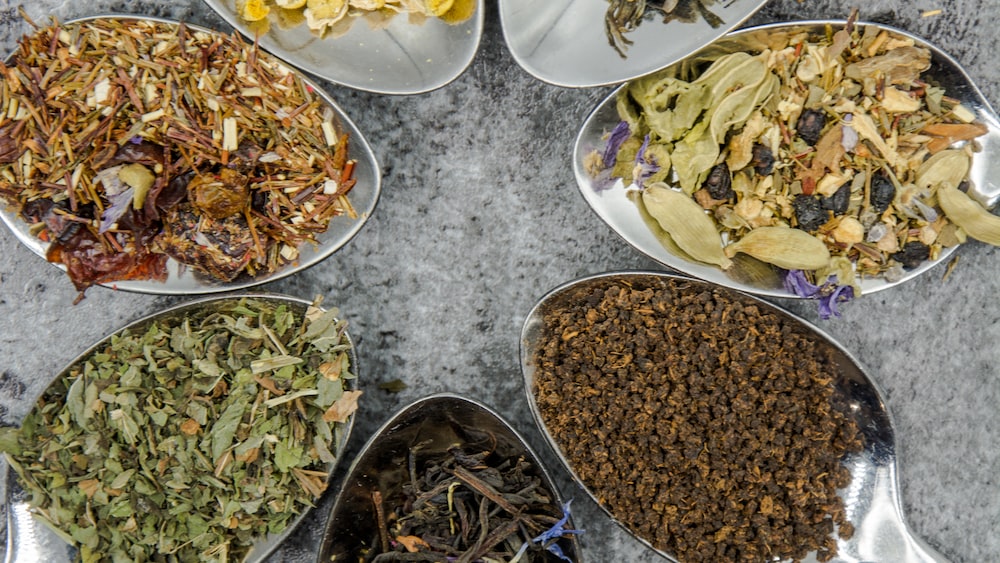9 Surprising Peppermint Tea Side Effects: Stay Informed!

9 Surprising Peppermint Tea Side Effects: Stay Informed!
Hello there, tea enthusiasts and wellness devotees! Ever sipped your cuppa and found yourself floating on the delicate waves of its soothing aroma? That’s the quintessential magic of tea! Now, imagine a whiff of lively peppermint joining this party in your teacup. Ah, the refreshing experience of peppermint tea. But did you know that this minty wonder is laced with some surprising twists? Yes, we’re talking about some unexpected peppermint tea side effects.
In the fascinating world of tea, where the green, black, and oolong varieties steal most of the limelight, peppermint tea often doesn’t get the credit it truly deserves. It’s not just a holiday beverage folks! Your cozy cup of peppermint tea comes with oodles of health benefits and a dash of intrigue. But like any good thriller, this one, too, has its share of unexpected turns, and buckle up, because we’re about to dive into them.
By the end of this blog, you won’t just be a tea-drinker. You’ll be a tea-connoisseur, well-versed with the multifaceted persona of the peppermint tea. So, grab your cup, nestle into a comfy corner, and embark on this thrilling tea adventure with a twist!
Understanding Peppermint Tea
Before we hop onto this roller-coaster ride of unfolding the surprising side effects of peppermint tea, let’s lay a solid foundation. It’s time to get up close and personal with this minty munchkin.
What is Peppermint Tea?
Peppermint tea is a mint-infused hot beverage made from dried or fresh leaves of the peppermint plant. Remember the refreshing hint of peppermint in your toothpaste? Yes, it’s derived from the same source! Unbeknownst to many, this minty freshness hiding in your tea has a legacy older than some of the tea legends. Originating from Europe, this herb made its regal presence felt through ancient Greek mythology, where it was considered the herb of hospitality.
Peppermint’s captivating story doesn’t end here. It traveled across boundaries, weaving its enchanting charm as it found its rightful place in our tea cups. Brewed solo or dancing in rhythm with other herbs, peppermint tea is a sight to behold, and more importantly, a delight on the palate.
Peppermint tea has a rich history and offers a refreshing and delightful taste.
Health Benefits of Peppermint Tea
To the uninitiated, sipping peppermint tea might seem like embarking on an arctic adventure aboard the teacup express. The cool rush of peppermint lends a refreshing note to your tea, but the benefits don’t stop at the taste. Peppermint tea, dear readers, is brimming with health benefits.
This tealicious beverage is known to ease digestive troubles and soothe your frayed nerves with its calming effects. What’s more, a steaming cup of peppermint tea can do wonders to alleviate headache and improve your mental focus. Ladies, if those menstrual cramps trouble you frequently, look no further! Peppermint tea happens to be a natural remedy to ease those painful cramps.
The Surprising Side Effects of Peppermint Tea
Armed with an understanding of peppermint tea, you’re ready to dive into the core subject – the surprising peppermint tea side effects. Hang onto your teacups as these revelations will pip up your tea journey.
1. Possible Indigestion Problems
Let’s a-tea-zle this up! Despite being used for settling the stomach, peppermint tea can pull a mischievous grin and cause…wait for it… indigestion! Now, I know what you are thinking. Walking on the plank hasn’t begun yet, why is the ship capsizing already?
But this is true folks. In some cases, especially when consumed in excessive amounts, peppermint tea may lead to heartburn or acid reflux. Peppermint has a knack of relaxing the smooth muscles of the Gastrointestinal tract, which can lead to increased acidity. If you’re someone battling acid reflux, you might want to reconsider your peppermint tea routine.
Still might be worth the occasional plunge into the minty-sea, no?
2. Potential for Lowering Sugar Levels
If you’re on the hunt for a dieter’s paradise, you’ve come to the right place. But wait! What’s this? An iceberg in this paradise!
While the health benefits of peppermint tea encompass helping in weight loss, there’s a flip side to this coin. Several studies reveal that peppermint might cause blood sugar levels to drop. Yes, your favorite peppermint tea could be a literal sugar-BUSTer! This makes it a dodgy territory for folks diagnosed with diabetes.
Though this side effect serves as an advantage for people trying to control their sugar intake, for those with hypoglycemia, it might be a slippery slope.
3. Risk of Allergic Reactions
Peppermint tea, one might think, is as gentle as a summer breeze. Turns out, for some, it can be a thunderstorm. A small but noteworthy proportion of tea-drinkers might experience allergic reactions with the instigator being none other than peppermint tea.
Flushed skin, heartburn, or even headaches might not be the result of your under-cooked pasta. Your beloved cup of peppermint tea could be the undercover agent wreaking this havoc. However, these reactions are not common and are majorly witnessed in those with a history of peppermint or menthol allergies. Just like every hero has a dark side, our peppermint hero is no exception. So tread carefully!
4. Not Advisable for Gastro Esophageal Reflux Disease (GERD) Patients
Hate to be the bearer of bad news, fellow tea enthusiasts, but it appears that peppermint tea, that storied bedtime relaxant, might not be so relaxing for everyone. Particularly, if you’re in the unlucky club of Gastro Esophageal Reflux Disease (GERD) patients, you may want to steer clear.
Why, you ask? Well, our trusty friend science has stepped in again with the answer. According to a study conducted by the University Medical Center of Freiburg, the soothing peppermint oil, a crucial ingredient in your peppermint tea, actually has a knack for relaxing the muscles of our gastrointestinal tract. Now, that might sound perfect if you’re healthy, but for GERD patients this can cause a possible backflow of stomach acid into the esophagus, leading to symptoms like heartburn and chest pain.
Peppermint tea can relax the muscles of the gastrointestinal tract, which may lead to symptoms like heartburn and chest pain for GERD patients.
5. Emmenagogue Effects
Let’s get a bit scientific now. You wanted the truth about peppermint tea side effects, and that’s exactly what you’re getting. Our minty friend here is an emmenagogue, which sounds like something from an alien dictionary but is actually a term for substances that stimulate blood flow in the pelvic area and uterus.
Do I need to point out the implications, ladies? Regular consumption of peppermint tea can potentially lead to changes in menstrual cycles. This isn’t a red flag for every female tea-addict but warrants consideration particularly for pregnant women, as increased pelvic blood flow could potentially lead to miscarriage. Of course, these possible outcomes hinge on many factors, including the amount of tea consumed and the individual’s physical condition.
Always remember when you fret about these ramifications to consult your doctor before making peppermint tea a staple; or any new beverage, for that matter.
6. Too Strong for Infants
It might be tempting to introduce our tiny tots to the delightfully refreshing experience that is peppermint tea. After all, passing on our love for this beverage is parenting 101! But, alas, the world of peppermint tea is not all sugar and sunshine.
Some studies suggest that the menthol in peppermint tea could be a touch too strong for our little ones, leading to possible breathing problems. As a guideline, infants under the age of two are not recommended to consume this tea. Remember, folks, better safe than sorry!
7. Possible Drug Interactions
Here’s where things get a bit tricky. Just as we have friends with conflicting personalities, peppermint tea, believe it or not, doesn’t get along with all medications. Drumroll, please, we’re about to delve into one of the most significant and surprising peppermint tea side effects – its potential to interact with certain drugs.
First off are antacids. Remember how we discussed GERD? While antacids presumably help soothe the condition, the irony is that peppermint tea can decrease their effectiveness. It’s a good example of when two right things can, in combination, lead to a wrong.
Next up, and arguably more concerning, are drugs that are broken down by the liver. Peppermint tea can slow down this process, potentially leading to medication building up in the system, thus amplifying their effects and side effects. Drugs in this category include certain antidepressants, pain relievers, and statins.
Please note: It’s crucial to consult a healthcare provider before adding peppermint tea to your routine if you’re on any medications.
Peppermint tea can potentially interact with certain medications, decreasing the effectiveness of antacids and amplifying the effects and side effects of drugs broken down by the liver.
8. Risk of Contamination
Raise your hand if you’ve ever worried about contamination in your tea? Seems like an odd thing to stress on, right? But yes, contamination can sneak into your brewing cup.
Peppermint plants can easily absorb metals and minerals from the soil, and potentially hazardous compounds from pesticides, which could lead to health risks when consumed. “But all our teas have potentially been grown in soil,” you retort! True, but peppermint, the overachiever that it is, particularly excels in absorption. Remember, knowledge is power, and the point is not to cause panic, but to shed light on possible peppermint tea side effects.
9. Potential to Cause Stomach Disorders
The tale of peppermint tea side effects swings back to the stomach now, you remember, the hub of all things food and drink related. Indulging in our favorite beverage can potentially lead to some stomach disorders.
The menthol present in peppermint tea can potentially relax the muscles of your gastrointestinal tract which, in certain cases, could result in diarrhea or nausea. It’s all about balance, folks, too much of a good thing really can lead to unwanted results!
Particularly vulnerable are those with a sensitive stomach, for whom even small amounts of peppermint tea could get the stomach grumbling. So, keep an eye on that cup, my friends, and remember your body’s cues.
How to Safely Enjoy Peppermint Tea
At this point, you might be reconsidering making peppermint tea your bedfellow. But, fear not. Like all things in life, safely enjoying this aromatic beverage lies in the magic of moderation and mindful consumption.
Preparing Peppermint Tea
Let’s stroll into the kitchen now, where the magic of peppermint tea unfolds. Preparing the perfect cup of peppermint tea requires attention, but certainly doesn’t require a wizard’s potion class level of skill.
Start with fresh water, preferably filtered. Remember, the quality of the water has a significant impact on your beverage. It can magnify the aroma and taste or, if you’re unlucky, introduce a whole range of unwanted flavors.
Choose high-quality tea. When picking a peppermint tea, it’s worth investing a bit more for a quality product. Not only does this tend to offer a superior flavor, but it also minimizes the risk of contamination we discussed earlier.
Finally, respect the brewing time. Oversteeping this tea could lead to a too-strong flavor and also potentially unleash more of those pesky side effects. Stick to the suggested brewing time, folks, and enjoy a safer, more delicious cup of refreshment.
Recommended Consumption
Indulging in peppermint tea can feel like a cosmic ballet in your teacup, but knowing how much to have is key to avoid any surprise pirouettes in the form of peppermint tea side effects. Like with most good things, you’ve got to exercise a bit of moderation, you know.
We would suggest having no more than two to three cups of peppermint tea per day. That’s right, just enough so your taste-buds can cha-cha without your body hitting the dance floor. This is just a suggestion, of course, as individual tolerances can vary.
Frequently Asked Questions
1. Can I drink peppermint tea if I have diabetes?
Drinking peppermint tea, for those having diabetes, is often considered safe. However, one must always be aware of the potential properties which can influence sugar levels.
2. Is peppermint tea safe for children?
Peppermint tea might have a role to play in the adventures of Alice in CandyLand, but we should refrain from introducing her to our little ones too early. The properties in peppermint tea can be too strong for infants or young children.
3. Can peppermint tea interact with my medications?
On the question of peppermint tea interacting with your medications, the answer is – potentially. Similar to our quirky cousin who doesn’t always gel well at family functions, peppermint tea can sometimes interact with certain drugs.
4. How much peppermint tea is safe to drink daily?
For the daily safe consumption, think of peppermint tea like you think of your toothpaste – effective and enjoyable, but too much might leave an uncomfortable tingle.
Conclusion
By now, you’ve journeyed through the whimsical world of peppermint tea, meandering through its many health benefits and sniffing out potential peppermint tea side effects. Undeniably, this aromatic beverage packs a punch, both in terms of health benefits it offers and striking taste it leaves behind.
It’s like a metaphorical docile dragon in a teapot – utterly mesmerizing with its peppermint oil spark but one that requires careful handling to avoid any burns. Ultimately, remember to enjoy this tea responsibly. Like a dance, it’s all about balance. Take too many steps, and you might just trip. But just the right amount, and you’re waltzing through a wonderland of wellness!
With all these swirling thoughts of peppermint tea still dancing in your cup, I’d like to say a warm goodbye. Keep the kettle whistling and remember to always sip wisely. Until the next brew,
Zoe.






